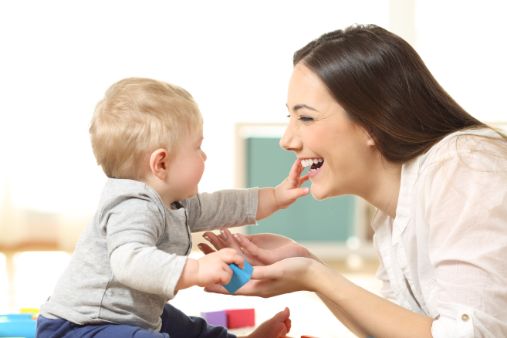Background
Children are dependent on social communicative skills and strategies in order to learn from others, both with regard to understanding the information they receive and request the information they need. The earliest learning experiences occurring at home varies between families and research show that this variation is partly related to socio-demographic factors.
Because achievement gaps are evident early on and typically escalate with increasing age, knowledge about functional learning processes that are effective and transferable across contexts can be important for the development of educational programs that target transitions in educational pathways, especially for those at social risk.
Previous work has, on the one hand, demonstrated that caregivers adjust the information they provide and the way they provide it to match their children’s interests and cognitive-linguistic levels, and, on the other hand, that children actively gather information from preferred knowledgeable others rather than wait for information to be provided to them.This combination of adult’s sensitivity and child-directed inputs, together with the child’s active and selective directing of adult attention and communication, yields a dynamic process, tailor-made for children’s evolving needs. Yet little is known about the developmental basis for children’s emerging information-seeking behaviors and how this interacts with caregivers’ responses to their informational needs and requests over the early years of life.
This project embraces a broad perspective on learning and will expand existing knowledge by adding to a fuller understanding of the developmental significance and implications of these early information-seeking interactions. We will more specifically address the ways in which early learning experiences shape the developmental foundation and formation of children´s emerging information-seeking strategies, how this development relates to socio-demographic background and to the children´s future learning outcomes.
Aims
The study is aimed at shedding light on the naturally occurring social learning processes that underlies the development of children’s active information-seeking, how it relates to socio-demographic background and risks (SES), and its impact on later achievements. Using observational, longitudinal and experimental data, we will examine:
- How the mothers' provision of information and young children's requests for information influence one another over time
- Whether variation in early learning interactions is associated with SES and child gender
- Whether variation in the early interactions predict differences in children's educational achievement once they reach school, especially across SES
- Causal mechanisms through which early information-seeking impacts later achievement, and how this depends on age, gender and SES
Methods
The project is cross-disciplinary and brings together national and international experts from developmental psychology, linguistics and education.
The project will combine data from a heterogenic socio-demographic subsample (n=75-90) from The Behavioral Outlook Norwegian Developmental Study (BONDS) with data from new targeted experiments with children in diverse childcare settings, and can be divided into three phases:
- The observational analyses will examine early learning experiences in already existing data from mother-child interactions during task situations at 1, 2 and 3 years
- The longitudinal analyses will look at how these early experiences are associated with later school achievement outcomes
- The experimental data analyses will test specific hypotheses about the causal mechanisms through which early information-seeking impacts later achievement through addressing how children transition in their information-seeking from one informant and informant’s style to another

